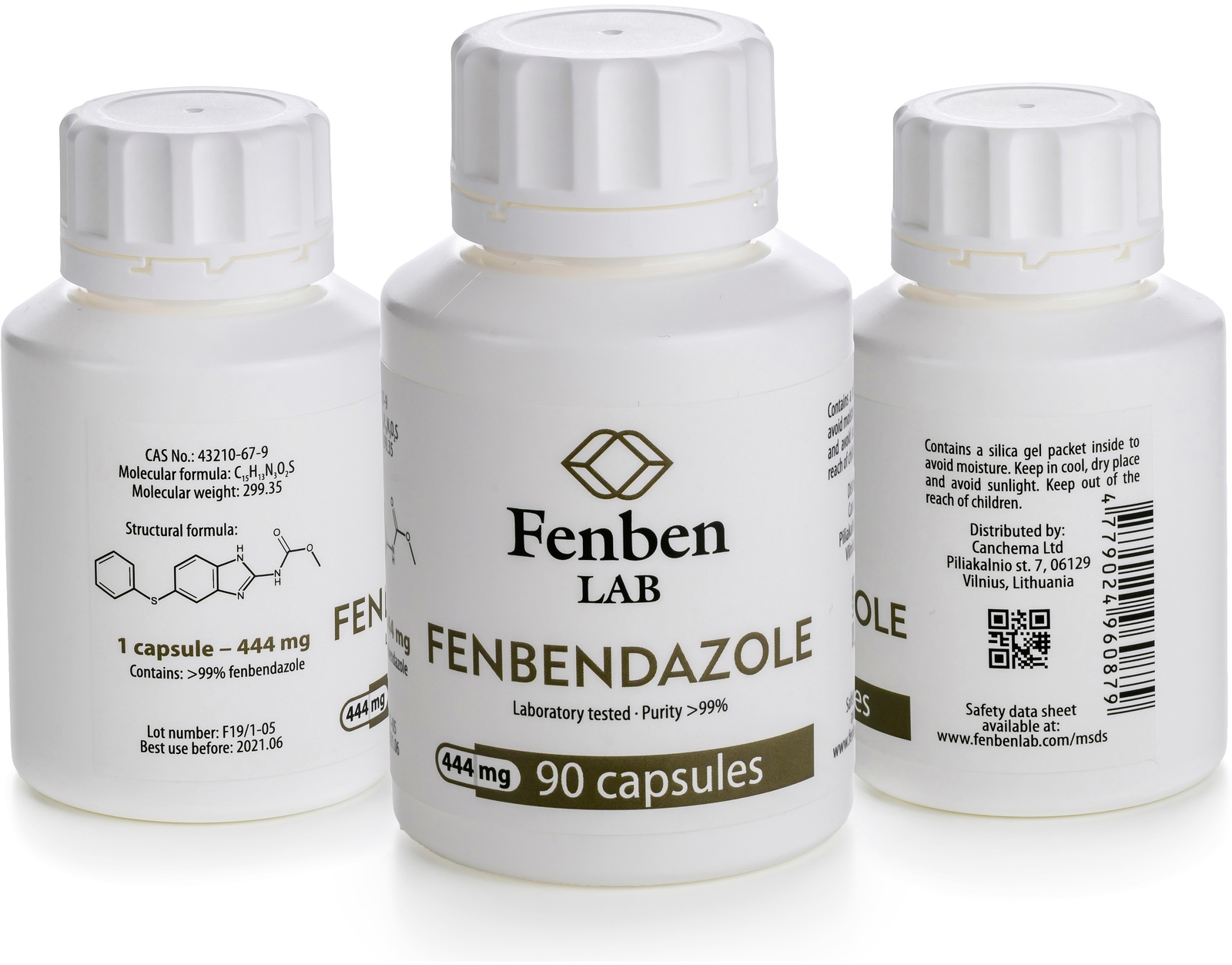When Joe Tippens was diagnosed with late-stage lung cancer, he was told he only had three months to live. He knew he could not accept this news, so he began scouring the Internet for alternative treatments.
His regimen included CBD oil, bioavailable curcumin and mega doses of vitamin E. But a simple dog dewormer also played a role in his remarkable story.
What is Fenbendazole?
Fenbendazole is a medication used to treat parasites and worms (roundworms, hookworms, whipworms, and some types of tapeworms) in animals. It is a common dewormer for dogs and is often sold under the brand name Panacur or Safe-Guard. Fenbendazole is also being used as a cancer treatment in humans, though research on this subject is limited.
Dog worms are common and can cause a variety of symptoms including vomiting, diarrhea, weight loss, abdominal pain, and lethargy. Luckily, most dog worms are treatable with oral medications like fenbendazole.
The anthelmintic properties of fenbendazole make it very effective against intestinal parasites such as roundworms, hookworms, and whipworms. It is also used off-label to treat and prevent giardia, a microscopic parasite that can cause severe diarrhea in humans and pets. It works by interrupting the energy metabolism of parasites, which causes them to die in the intestinal tract. This makes it a very useful veterinary medicine. It is available as a chewable tablet or liquid suspension and should be administered according to your veterinarian’s instructions.
Fenbendazole as a Cancer Treatment
Fenbendazole is a broad-spectrum benzimidazole that has been used in veterinary medicine to treat intestinal parasites such as roundworm, hookworm, whipworm and lungworm. It is also used to protect against other parasites such as giardia and flukes. This medication can be purchased in granule, chew or liquid form and must be administered directly into the stomach of your pet. This can cause gastrointestinal upset in some pets. To reduce gastrointestinal upset it is recommended to mix the granules or liquid into your pets food before administering.
Interestingly, researchers have discovered that fenbendazole has anti-cancer effects in colorectal cancer cells (CRC). They found that fenbendazole inhibits the proliferation of CRC cell lines through its microtubule depolymerizing activity and induces apoptosis through p53-p21 pathways. However, it does not promote autophagy, ferroptosis or necroptosis in these cells.
Your veterinarian may prescribe a compounded version of this medication for your pet. This is done when there is a reason that your pets health cannot be managed with FDA-approved drugs (eg the dosage strength is not commercially available or your pet has an allergy to one of the ingredients). This can save you time and money as your pet will get the treatment it needs quickly.
Fenbendazole Side Effects
Fenbendazole is a safe, broad-spectrum anthelmintic. When used as directed by your veterinarian, the side effects are typically mild and brief. Pouring fenbendazole over your pet’s food can make it easier for them to take and will minimize nausea.
Panacur kills roundworms, hookworms, whipworms, and some tapeworms in dogs (though it is not effective against the common dog tapeworm, Dipylidium). It is also very useful for treating giardia infection and lungworm infections.
It is important that you complete the full course of Panacur prescribed by your vet, even if your pet feels better before the end of the treatment period. This will prevent recurrence and resistance to the medication. Fenbendazole works by binding to tubulin and disrupting its ability to form microtubules. This causes the worms to collapse and die in their intestines. It is safe to use in pregnant and nursing dogs, but be sure to ask your veterinarian before using it with young puppies.
Fenbendazole for Dogs
Fenbendazole is a broad spectrum benzimidazole anthelmintic that is used to treat intestinal parasites such as hookworm, roundworm, whipworm, and the tapeworm genus Taenia. It is also used off-label to treat Giardia and lungworm infections in dogs. It works by interrupting the worms’ ability to produce energy, starving them, and ultimately killing them. This dewormer can be given orally in granule, liquid, chew, and capsule forms. It is safe for puppies, pregnant dogs, and nursing mothers, though a lower dosage is recommended for pregnant females.
The powdered form of this medication is easy to mix into your dog’s food, and it is typically given for three days in a row. Be sure to follow the instructions on the label carefully, and always use this medication under a veterinarian’s supervision. Your vet may recommend a fecal examination to ensure that all of the internal parasites have been killed by this drug.dog dewormer for cancer

